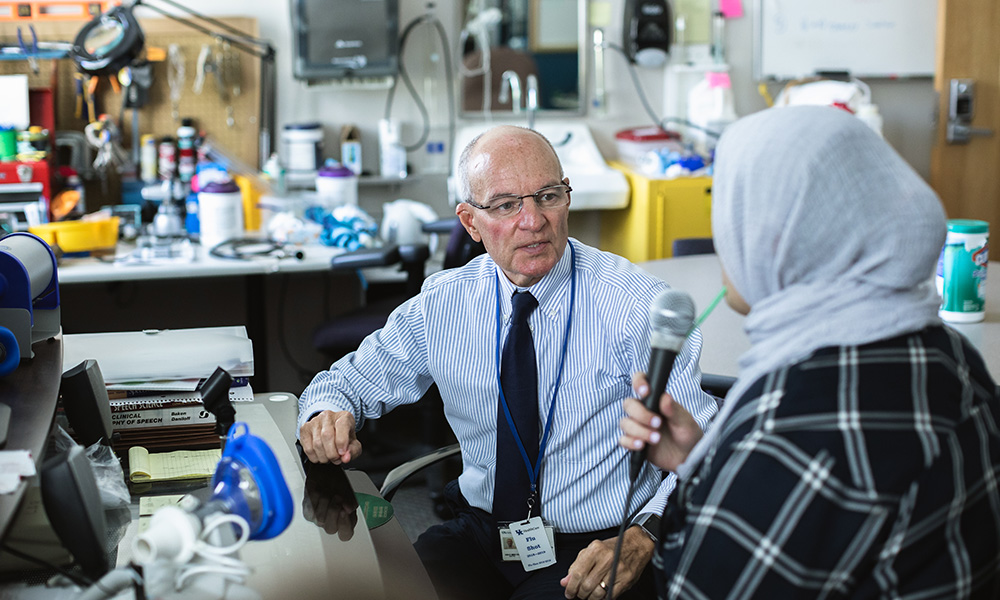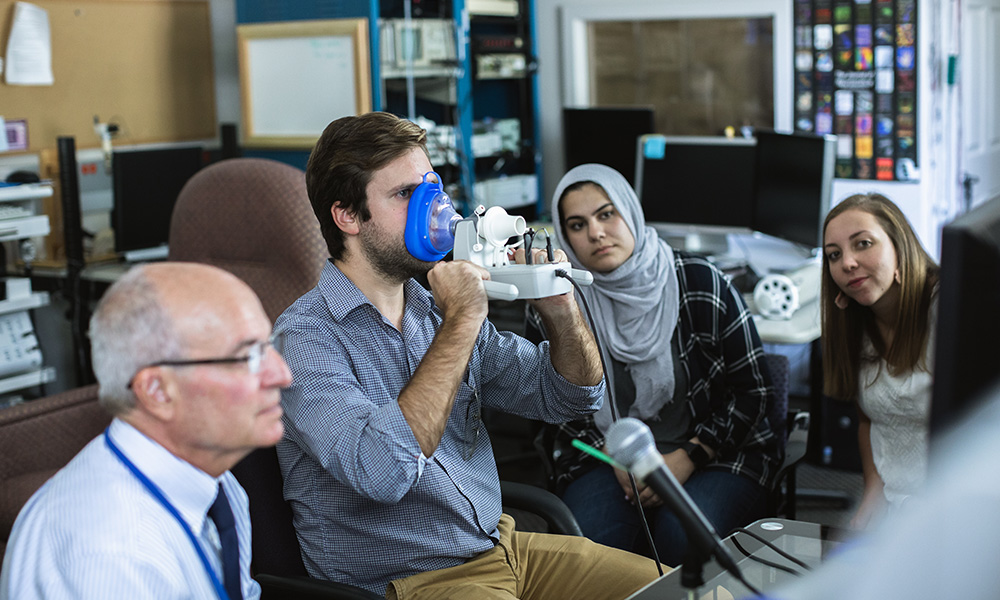Laryngeal & Speech Dynamics Lab
The Laryngeal & Speech Dynamics Lab (LSD), located in Wethington 106, is a shared, multipurpose research facility designed to study the physiological and behavioral aspects of speech and voice production. The LSD research group couples basic and clinical research, allowing for an integrated approach to the study of normal and disordered voice production and human communication. The LSD Lab director is Richard Andreatta, Ph.D.

The LSD lab is flexibly designed to study sensorimotor aspects of vocal tract systems, but the equipment setup and stimulus protocols can be adapted with minimal effort to support conceptually similar research studies in both the hand and limb systems. This flexibility allows for expanded research and training opportunities for other areas with related interests in the sensorimotor dynamics of skilled human behavior (i.e., Athletic Training, Physical Therapy, Kinesiology, Occupational Therapy). The lab contains systems to support video imaging of the laryngeal system (flexible and rigid high-speed endoscopy - Pentax); voice, acoustic, and aerodynamic assessment (Computer Speech Lab/PAS/Nasalence - Pentax); chest wall assessment (Respitrace), surface electromyography; lip and jaw kinematics using custom-built strain gage technology; force assessment of the tongue, lips and jaw; cutaneous psychophysics; and trigemino-facial reflex assessment. The LSD lab is also equipped with various signal generation, acquisition, and processing hardware and software to support our experiments.

Aphasia Lab
The Aphasia Lab provides individual and group services in-person and online (zoom). All services are free and run by supervised graduate students. Undergraduate students participate in research activities within the UK Aphasia Lab.